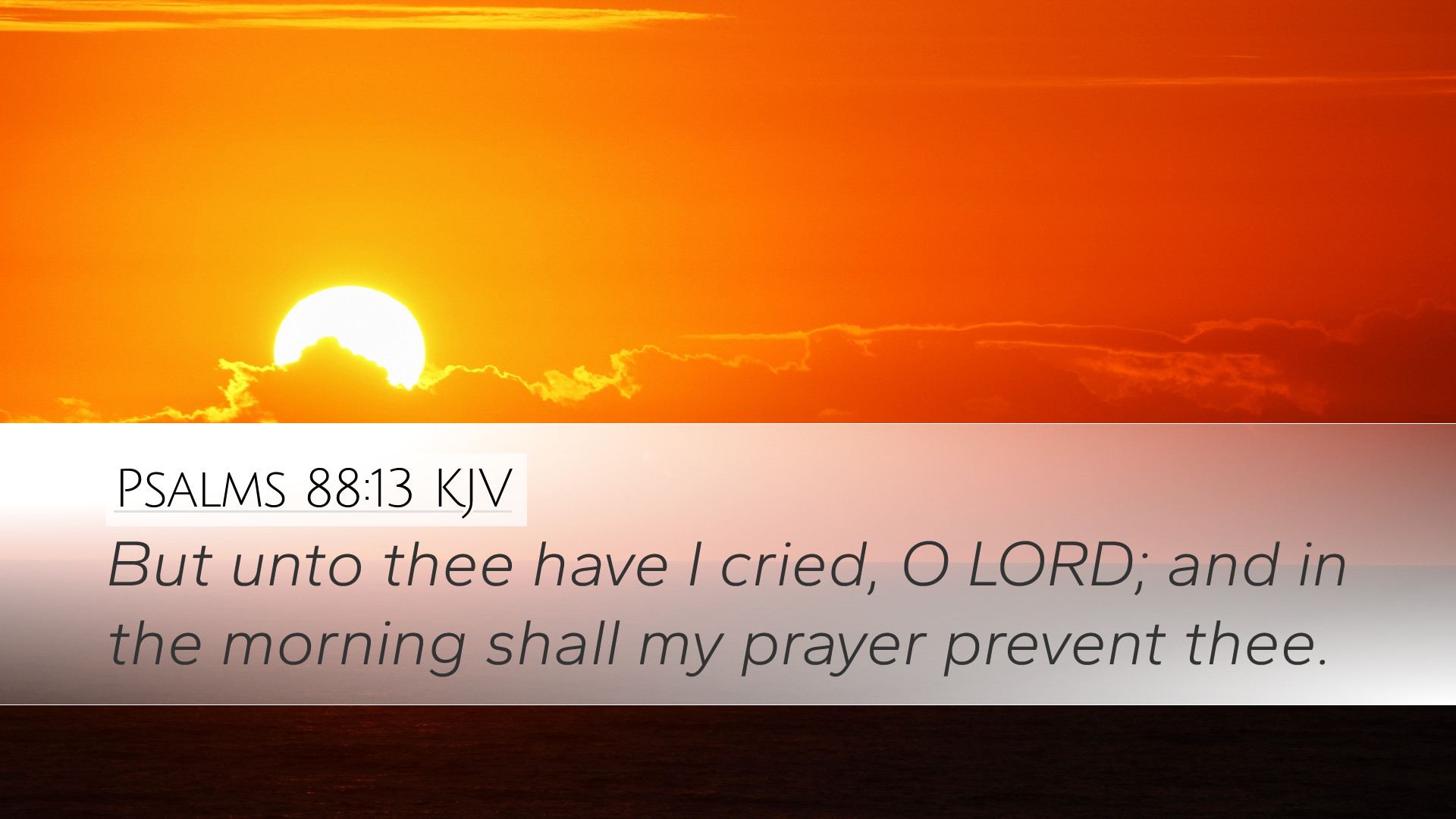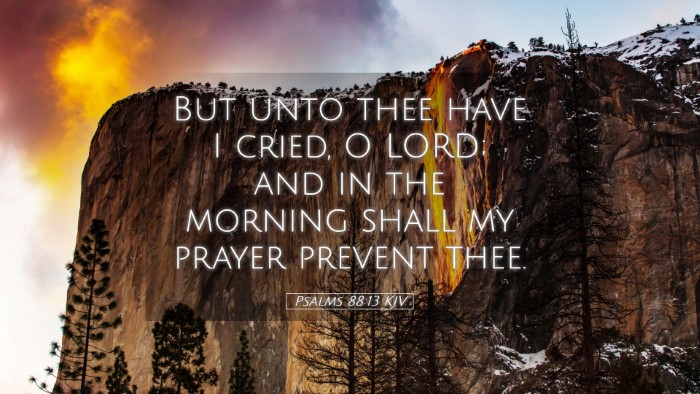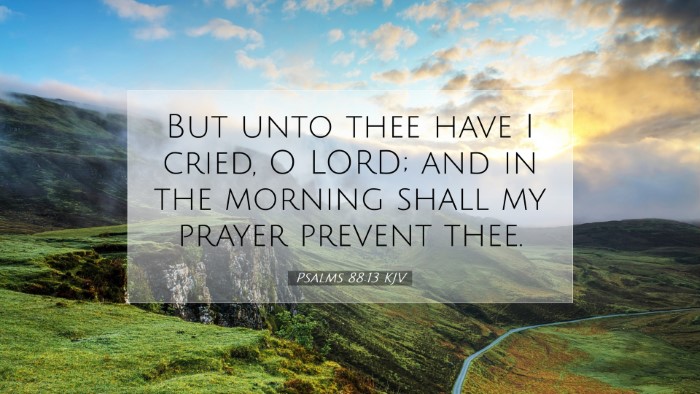Psalms 88:13 Commentary
Bible Verse: "But to You, O Lord, I have cried out, and in the morning my prayer comes before You."
Overview
This verse is a poignant declaration of hope amidst despair, an integral component of Psalm 88, which is recognized as one of the most melancholic psalms in the Book of Psalms. The psalmist, identified as Heman the Ezrahite, expresses deep anguish and a feeling of abandonment yet clings to his prayer directed to God.
Contextual Analysis
Historical Context: The psalm was likely written during a time of great personal distress, possibly relating to illness or a time of national calamity. Heman’s affiliation as a musician in David’s court frames his expressions of sorrow within a cultural context of worship and communal lament.
Affliction and Lament
This psalm distinctively illustrates the height of suffering and the depth of lamentation. As Matthew Henry notes, it exhibits an honest portrayal of human suffering, a reality that many believers face. The progression of emotion leads the reader through feelings of isolation, despair, and ultimately back to a cry for help from God.
Thematic Elements
- The Persistence of Prayer: Heman emphasizes the importance of continual prayer, indicating that despite his dire circumstances, he remains steadfast in calling upon the Lord.
- Hope in Darkness: Albert Barnes observes that the acknowledgement of God in prayer represents a flicker of hope in deep darkness, embodying the faith necessary even amidst overwhelming trials.
- The Nature of God’s Response: Heman's cry contrasts with the silence he feels from God, which raises profound questions about divine presence and absence in our suffering. Adam Clarke emphasizes that the psalmist’s commitment to God in prayer shows the understanding that prayer is a source of strength despite seeming silence.
Theological Reflections
In discussion of this verse, we are called to reflect on the relationship between suffering and faith. The psalmist's cry out to God is not an indication of abandonment from faith but rather a powerful assertion that even in his pain, he turns towards God.
God’s Faithfulness in Prayer
Matthew Henry notes that the act of crying out to God demonstrates a believer's acknowledgment that true solace can only be found in the Lord. This emphasizes a critical principle in Christian theology: God’s faithfulness in response to our earnest supplications.
Applications for Life and Ministry
For pastors and theologians, this passage serves as a reminder of the complexities of human emotions in the faith journey. The psalm illustrates that lament can coexist with faith, inviting believers to bring their honest struggles before the Lord.
- Crisis of Faith: Pastoral care must encompass the reality of spiritual doubt and emotional distress. This psalm validates that anguish is often part of the Christian experience and encourages churches to provide space for lament.
- Prayer as a Lifeline: The importance of prayer in moments of distress cannot be overstated. This encourages a robust prayer life among congregants, fostering a culture where crying out to God is normalized.
- Community Support: As the psalmist wrestles alone with his plight, churches can learn the importance of surrounding individuals with support, prayer, and active presence during adversity.
Concluding Thoughts
Psalms 88:13 illustrates a striking moment in which despair meets devotion. It invites readers and scholars alike to explore the dimensions of their faith when faced with suffering. This verse becomes a backdrop for understanding that even in the darkest moments, the act of prayer is a profound declaration of faith. As both Matthew Henry and Albert Barnes reflect, prayer is not merely a ritualistic practice but an intimate communion with God that anchors believers through the storms of life.
Ultimately, the psalm reminds us that while the silence of God may be profound, He invites us to speak to Him, demonstrating that our cries are heard. As theologians and ministers engage with this text, there lies an opportunity to explore the myriad ways the faithful can navigate their pain while remaining anchored in God’s presence.


